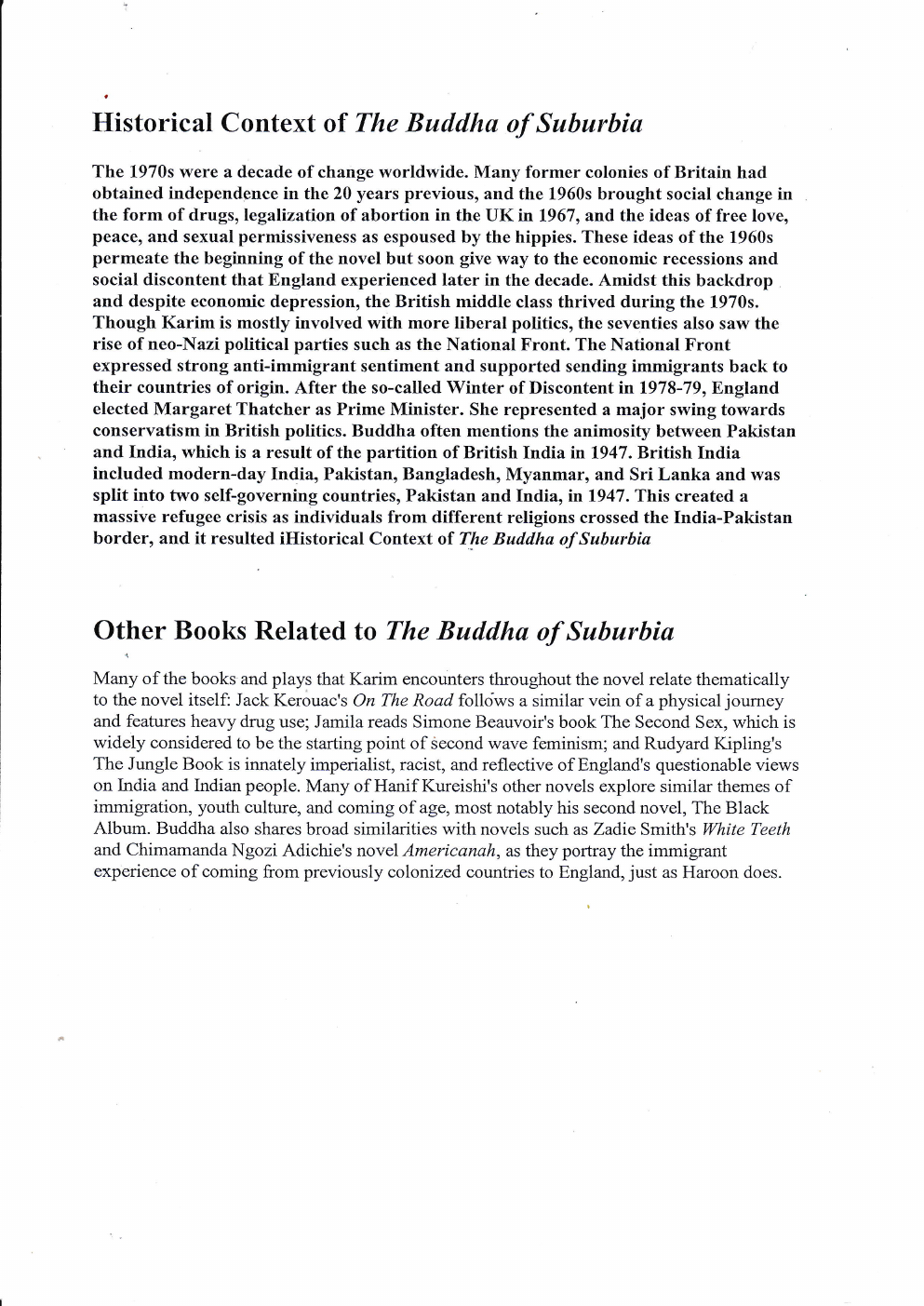Hanif Kureishi - The Buddha of Suburbia
Publié le 20/06/2022

Extrait du document
«
Historical Context of The Buddha of Suburbia
The 1970s were a decade of change worldwide.
Many former colonies of Britain had
obtained independence in the 20 years previous, and the 1960s brought social change in
the form of drugs,legalization of abortion in the UK trr1967, and the ideas of free [ove,
peace, and sexual permissiveness as espoused by the hippies.
These ideas of the 1960s
permeate the beginning of the novel but soon give way to the economic recessions and
social discontent that England experienced later in the decade.
Amidst this backdrop
and despite economic depression, the British middle class thrived during the 1970s.
Though Karim is mostly involved with more liberal politics, the seventies also saw the
rise of neo-Nazi political parties such as the National Front.
The National Front
expressed strong anti-immigrant sentiment and supported sending immigrants back to
their countries of origin.
After the so-called Winter of Discontent in L978-79, England
elected Margaret Thatcher as Prime Minister.
She represented a major swing towards
conservatism in British politics.
Buddha often mentions the animosity between Pakistan
and India, which is a result of the partition of British India inL947.
British India
included modern-day India, Pakistan, Bangladesh, Myanmar, and Sri Lanka and was
split into two self-governing countries, Pakistan and Indiq in1947.
This created a
massive refugee crisis as individuals from different religions crossed the India-Pakistan
border, and it resulted illistorical Context of The Buddha of Suburbia
Other Books Related to The Buddha of Suburbia
*"r,
of the books and plays that Karim encounters throughout the novel reiate thematicaily
to the novel itself: Jack Kerôuac's On The Road follows a similar vein of a physical journey
and features heavy drug use; Jamila reads Simone Beauvoir's book The Second Sex, which is
widely considered to be the starting point of §econd wave feminism; and Rudyard Kipling's
The Jungle Book is innately imperialist, racist, and reflective of England's questionable views
on India and Indian people.
Many of Hanif Kureishi's other novels explore similar themes of
immigration, youth culture, and coming of age, most notably his second novel, The Black
Album.
Buddha also shares broad similarities with novels such as Zadie Smith's [ÿthite Teeth
and Chimamanda Ngozi Adichie's novel Americanah, as they portray the immigrant
experience of coming from previously colonized countries to England, just as Haroon does..
»
↓↓↓ APERÇU DU DOCUMENT ↓↓↓
Liens utiles
- does the end justifies the means
- the handmaid's tale: How far do you agree that Margaret Atwood makes resistance central to THT?
- La surprise au cinéma - Critique The King of Staten Island et Annette
- The danger of space exploration on the human body and the environment
- essay anglais: In my opinion, the improvement of human capacities poses several problems


